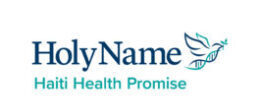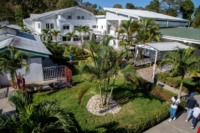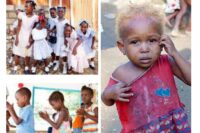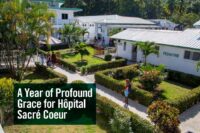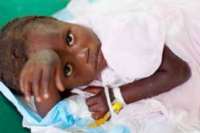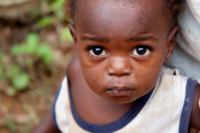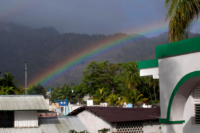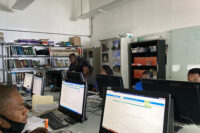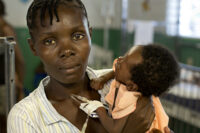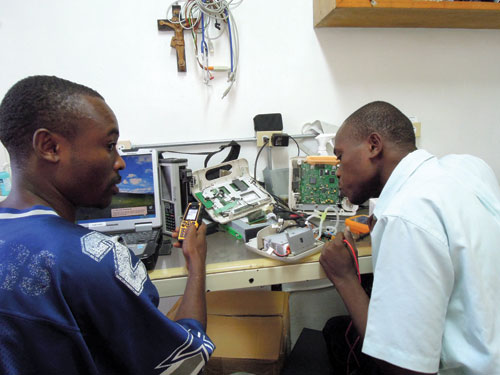 By Tim Traynor, Onsite Ground Coordinator
By Tim Traynor, Onsite Ground Coordinator
In 2011, we began a program at the hospital to train two young Haitian students to help in the effort to keep our newly acquired technology running. In Haiti, it is a well-worn reality that the deleterious environmental conditions, in which sophisticated medical equipment must perform, present a substantial challenge.
The permeating humidity, constant power fluctuations and outages, determined insect and rodents, as well as the constant presence of dust, take their daily toll on machines designed to operate at a high level of accuracy and function. These new and vital machines, for the most part, were intended to run in air-conditioned, dust free settings; a reality that currently cannot be achieved at Sacré Coeur. Recognizing this certain dilemma as a unique opportunity, the TriMedx Corporation established a two year program that envisioned creating a level of competency that offered trainees basic skills to troubleshoot and repair the most common equipment failures.
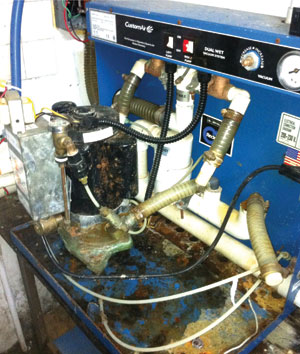 After a comprehensive search within our current staff for two candidates, Denis Alce and Joseph Riviere were chosen to begin their studies. TriMedx also invited St. Boniface Hospital, which is located 55 miles southwest of Port Au Prince, to add two students from their facility to join the program. Over the next year, both hospitals alternated hosting the volunteers from the US and their counterparts to attend week long classes, which involved a combination of classroom studies and actual hands on workshops where various pieces of equipment from their respective facilities were repaired.
After a comprehensive search within our current staff for two candidates, Denis Alce and Joseph Riviere were chosen to begin their studies. TriMedx also invited St. Boniface Hospital, which is located 55 miles southwest of Port Au Prince, to add two students from their facility to join the program. Over the next year, both hospitals alternated hosting the volunteers from the US and their counterparts to attend week long classes, which involved a combination of classroom studies and actual hands on workshops where various pieces of equipment from their respective facilities were repaired.
During these sessions, our students were introduced to the fundamental principles of electronics, computer technology, best practices and various other general knowledge prerequisites, while working alongside other US based biomed technicians from across the medical equipment spectrum. One of our regular volunteers, Dave Sieminski, a senior respirator technician from the Philips Corporation, assumed the role of coordinator for CRUDEM and has made frequent trips at his own expense into Haiti mentoring the two groups through the curriculum and interactive training.
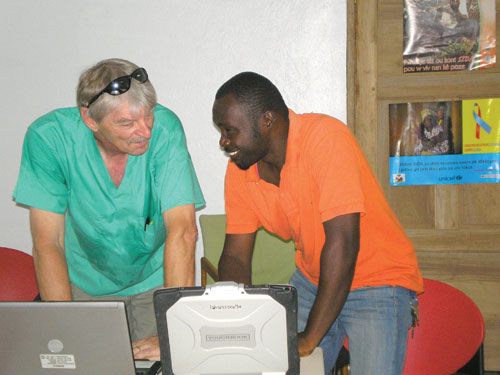 After completing the first module, Denis and Joseph began working on various pieces of medical equipment at Sacré Coeur. During a recent trip to Milot, I observed the students troubleshooting one of our new GE Aispere anesthesia machines. The machine stopped working suddenly and was removed from service and substituted with an older unit which did not have the advanced capabilities. Through a series of telephone calls and emails to a GE Healthcare service center; a defective circuit board was identified, shipped and replaced. After its repair, a series of diagnostics were executed via the internet and once the factory was confident the equipment was operating as designed, the overhauled machine was put back into service. Dr. Rick Pitera, another regular volunteer from St. Barnabas Medical Center of Livingston, NJ, then tested the equipment prior its use in surgery.
After completing the first module, Denis and Joseph began working on various pieces of medical equipment at Sacré Coeur. During a recent trip to Milot, I observed the students troubleshooting one of our new GE Aispere anesthesia machines. The machine stopped working suddenly and was removed from service and substituted with an older unit which did not have the advanced capabilities. Through a series of telephone calls and emails to a GE Healthcare service center; a defective circuit board was identified, shipped and replaced. After its repair, a series of diagnostics were executed via the internet and once the factory was confident the equipment was operating as designed, the overhauled machine was put back into service. Dr. Rick Pitera, another regular volunteer from St. Barnabas Medical Center of Livingston, NJ, then tested the equipment prior its use in surgery.
Without our ability to analyze and troubleshoot an apparatus, like the anesthesia machine on site, this device would have had to be shipped back to the US for repair. Considering all of the extraordinary difficulties involved in getting such a piece of equipment in and out of Haiti, it may have taken more than a year to return it to service, not to mention the great expense of fees and transportation that would be required.
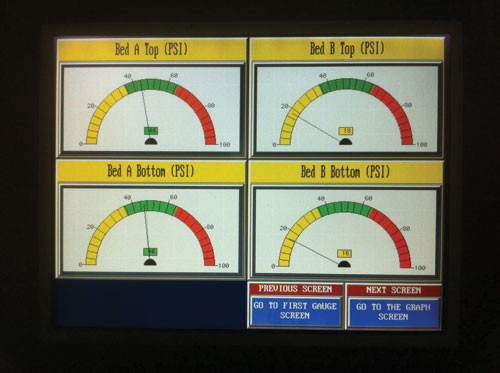 As a result of their training, Denis and Joseph now spend their days providing the required maintenance of various medical devices. Many units have filters that must be changed, minor adjustments needed to keep the equipment in calibration and, in general, visual inspections for small problems that lead to eventual failure. Of course, it takes years of intensive study, testing and certification to achieve a level of competency to become a qualified biomed technician, but because of the staggering impediments faced in returning this sophisticated equipment back to their manufacturers for service, and the dearth of electronic resources available in country, it has become an absolute imperative that such an initiative succeed.
As a result of their training, Denis and Joseph now spend their days providing the required maintenance of various medical devices. Many units have filters that must be changed, minor adjustments needed to keep the equipment in calibration and, in general, visual inspections for small problems that lead to eventual failure. Of course, it takes years of intensive study, testing and certification to achieve a level of competency to become a qualified biomed technician, but because of the staggering impediments faced in returning this sophisticated equipment back to their manufacturers for service, and the dearth of electronic resources available in country, it has become an absolute imperative that such an initiative succeed.
At Hôpital Sacré Coeur, we have a history of support from numerous individuals and companies, who have either donated or discounted equipment for the Haiti mission; the Philips Medical of Andover, Massachusetts, is a most glowing example of such generosity for their more than $2,000,000 worth of equipment given during the earthquake recovery. In the past, we also have had been fortunate to have several US biomed techs like Dave Sieminski make the trip to Milot to perform the more complicated service and repairs. To a great extent, we have been able to defy the axiom that it is impossible to bring technology to a poor nation like Haiti and keep it functioning.
It has always been the underlying principal of CRUDEM to create a sustainable healthcare model that relies less on foreign management and more on Haitian developed skills. This core value is the hope of everyone participating in the mission and there are increasing signs, such as the biomed tech initiative, that this reality is taking hold.
If you have a talent in the biomed tech field, I would encourage you to contact me at TTraynorUSA@gmail.com to become involved in this wonderful experiment.
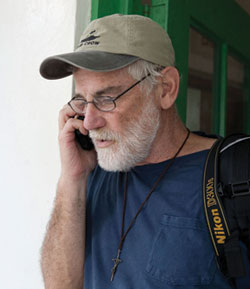 I can assure you that the rewards of seeing your talents employed by our willing and intensely interested young men will be worth the time and effort to travel to Milot and join us as we continue to make these unique in roads in an area of technical self-sufficiency.
I can assure you that the rewards of seeing your talents employed by our willing and intensely interested young men will be worth the time and effort to travel to Milot and join us as we continue to make these unique in roads in an area of technical self-sufficiency.
Tim Traynor, a Master Electrician by trade, is the CRUDEM/HSC Onsite Ground Coordinator and oversees construction projects, facilities management and serves as a liaison for CRUDEM. Tim divides his time between Milot and his home in South Carolina.
